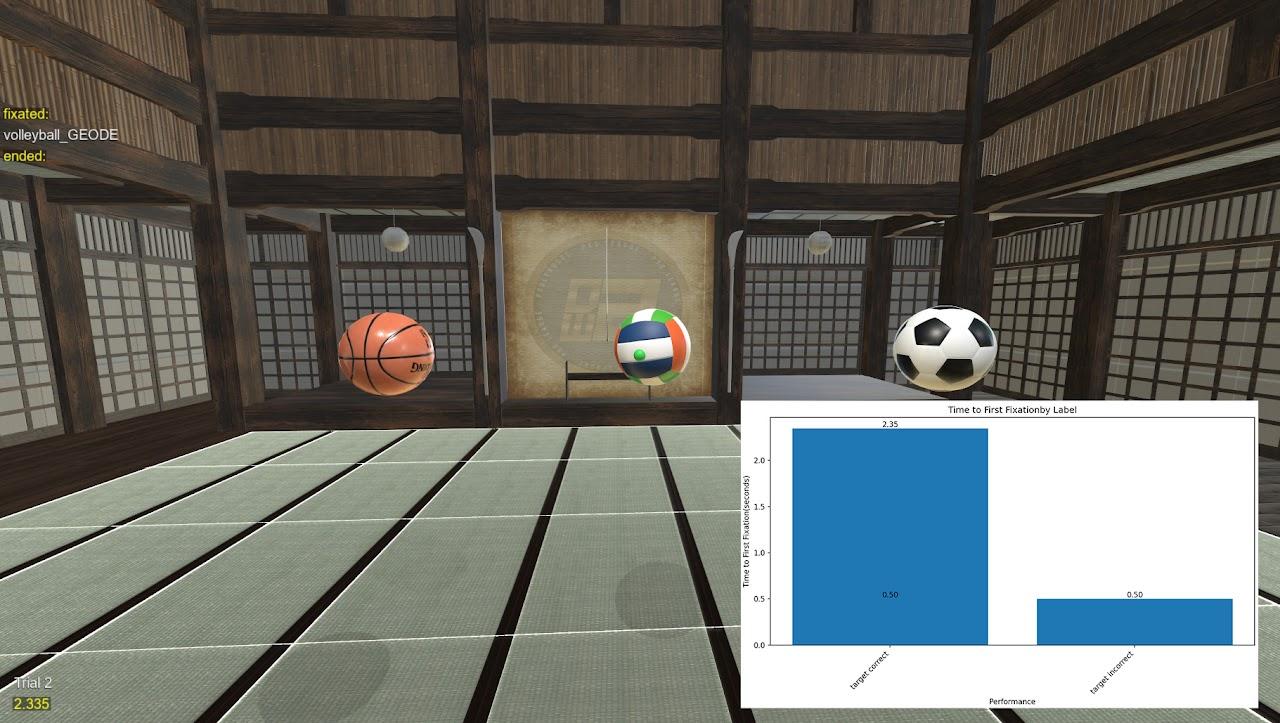Distance Perception
 Distance Perception Task and Template
Distance Perception Task and Template
Modifiable Template that can be modified and run using the GUI with no code, or use a non-GUI code based version.
- Subject gets instructions to memorize the distance of 3 objects
- Practice trial/learning phase
- Trials then run while the object's position in X is randomly shuffled and 2 out of 3 of the objects shift either slightly forward or backward in Z.
- Subject is then asked which one did not change
- Data is saved on performance alongside all included metrics (saccade data, Time to First Fixation, eye intersect positions, individual eye rotation, head position, view counts, dwell time, heatmaps, scan paths, etc.)
- Compare one measurement against a specified condition. By default this is set to Time to First Fixation and Performance, but can be modified.
If seated and using a headset, change SEATED = False to "True"
Can swap out objects, environment and other conditions
Possible Hypothesis to Explore:
Hypothesis: Participants will demonstrate reduced accuracy and increased Time to First Fixation (TTFF) in identifying the unchanged object when the distance changes of the other objects are minimal (i.e., subtle forward/backward shifts), compared to when the shifts are more pronounced.
This hypothesis is rooted in perceptual psychology, suggesting that small changes in object position are harder to detect, and will require more cognitive and visual processing time (reflected in TTFF, dwell time, etc.). Features of experiment structured to test this:
- randomly shifting two of the three objects along the Z-axis (depth).
- tracking performance (correct vs incorrect selection).
- collecting detailed eye tracking data (TTFF, gaze points, fixations).
Additional Hypotheses You Could Explore
- Effect of Object Position on Accuracy:
- Participants are more accurate when the unchanged object is in the center (middle) than when it is on the left or right.
- Gaze-Based Prediction of Accuracy:
- Shorter Time to First Fixation (TTFF) on the unchanged object correlates with higher accuracy.
- Learning Effect Over Trials:
- Participant performance improves across trials due to learning or adaptation.